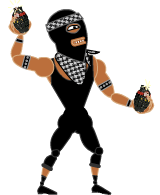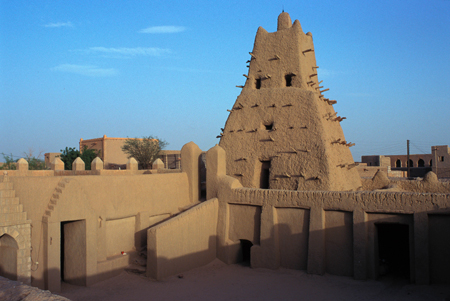
KINSHASA, Congo — Ballot boxes on fire, rebel fighters gunning down poll workers and outbursts of mob violence marred Congo’s national elections on Monday, only the second time this vast and troubled country has held anything resembling a democratic vote.
Few here predicted these elections would be easy. President Joseph Kabila is reviled in many parts of the country, and his security forces have already killed many opposition supporters and used a mix of repression and bribery to squeeze out votes.
At the same time, opposition leaders are dangerously stirring up their camps, saying that the elections have been rigged and calling on people to reject the results. The leading presidential challenger, Etienne Tshisekedi, a 78-year-old rabble-rouser, has already declared himself president, and countless young people who voted for him said they were ready to flood the streets and risk their lives should Mr. Tshisekedi lose.
A quilt of thick, dark clouds hung over Kinshasa, the capital, at dawn on Monday as election officials stumbled to open polling places on time. Many polling places were missing ballots, countless people complained that they could not find their names on the voting lists, and loose ballots were inexplicably lying around deserted offices.
Rumors flew and tempers flared. At St. George’s School in the center of town, someone shouted that an election worker was trying to steal votes for Mr. Kabila. A mob of young men surrounded him within seconds. They tore off his blue election commission vest and started slugging him in the face, the cracks of fist on bone ringing out across the schoolyard.
Women screamed and the election worker was knocked to the ground, where he curled up, absorbing kick after kick. A lone policeman tried to come to the rescue, but the mob quickly swallowed him, too, and it was not clear if the election worker survived.
Natalie Noella, a 23-year-old student, said as she left the polls: “What do I fear? I fear death. No one knows what’s going to happen.”
The worst violence broke out far from the capital. According to election observers, masked rebel fighters attacked a polling place in Lubumbashi, in the southeast. At least five people were killed in the ensuing 45-minute gunfight with the police.
In West Kasai Province, an opposition stronghold, witnesses said that infuriated opposition supporters burned down as many as a dozen polling places.
In North Kivu Province, on the eastern border, human rights observers said that several polling places had no ballots as of Monday afternoon and that army commanders were going around villages warning people that they had better vote for Mr. Kabila.
Congo is no stranger to violence. This country has been steeped in brutality for more than 100 years. It began in the 1880s, when King Leopold II of Belgium turned this abundantly fertile expanse into his personal fief, murdering and enslaving the people in order to collect as much ivory and rubber as humanly possible.
Congo’s next megalomaniac figure, Mobutu Sese Seko, robbed the country blind during his 31 years of kleptocratic rule. Rebels overthrew him in 1997, plunging Congo into a cycle of war that has killed millions and still grinds on today, especially in the mountains of the east.
Many people here are fed up with Mr. Kabila, who has been in power for 10 years. Despite Congo’s staggering natural resources — its diamonds, gold, cobalt, copper, crude oil and seemingly endless miles of hardwood forests — this nation now ranks as the least developed on earth. People complain of no jobs, no opportunity and no hope.
Antho Mputu, a high school graduate fluent in three languages, has been wandering Kinshasa’s garbage-strewn streets for years now, selling crusty baguettes from a plastic bag balanced on top of her head. It is a bleak life for a single mother of two, and on Monday she scratched her X next to Mr. Tshisekedi’s name.
“We need somebody new, and if the voice of the people isn’t respected,” Mrs. Mputu warned, “there’s going to be trouble.”
Congo’s institutions are grievously weak and notoriously corrupt. Many Western officials say they fear a close election, with Mr. Kabila and Mr. Tshisekedi each claiming to be the winner. Any dispute will ultimately be refereed by Daniel Ngoy Mulunda, the head of the election commission and a friend of Mr. Kabila, which has fueled suspicions of cronyism and fraud.
Analysts say Mr. Kabila, 40, could eke out a thin plurality — he had the Constitution changed this year to eliminate a second round. Though Mr. Tshisekedi seems to be the most popular opposition figure nationwide, he has company: nine other presidential challengers to split the vote with. Once again, Congo’s opposition failed to unite.
The ballots here are huge. More than 18,000 people are running for Parliament. In some districts, 1,400 candidates are competing for a single seat, making the ballot several pages long and as thick as a newspaper. Many of the polling places in Kinshasa were located in decrepit schools with moldering, lichen-spotted walls and no electricity. Elderly voters needed help just seeing who to vote for in the dark, cardboard voting booths.
Election officials intimated over the weekend that voting may continue for a few more days, especially in places where the ballots arrived late. Results are not expected until next week.
Unlike the last national elections in 2006, in which the United Nations helped enormously with logistics, Congolese officials are doing most of the work on their own. The turnout on Monday seemed lighter than it was in 2006. Still, many polling places were crowded, with lines out the door.





